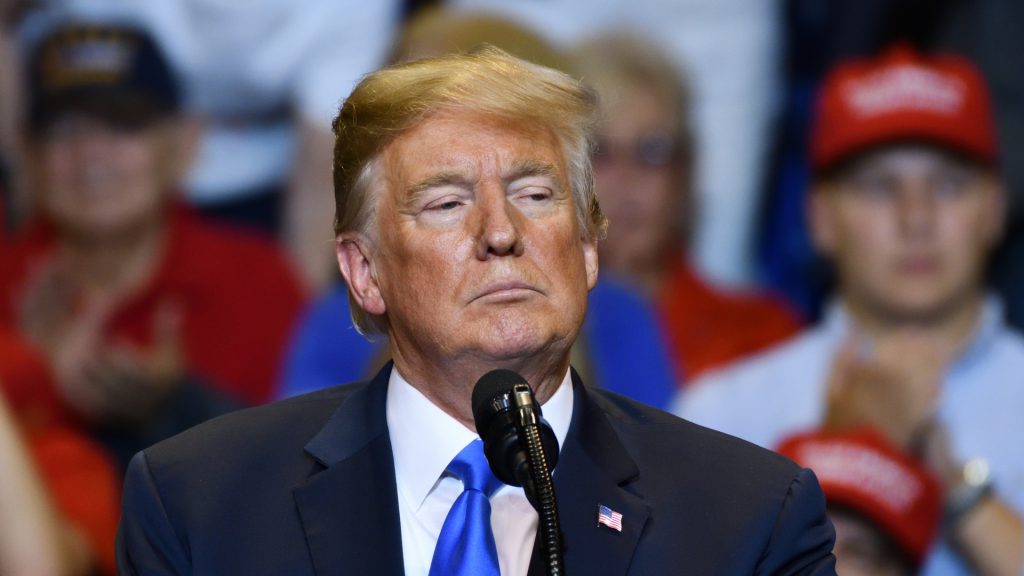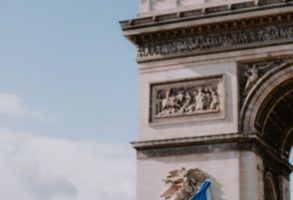
Published November 2, 2020
If Donald Trump loses his re-election bid, there will be a lot of ruin to sort through. But his most damaging and enduring legacy may well turn out to be the promiscuous use of conspiracy theories that have defined both the man and his presidency.
The president’s cruelest policies, like intentionally separating children from their parents at the border, can at least be ended, although their devastating effects will reverberate for decades. It’s less clear what the half-life is for his conspiracy theorizing, which fundamentally distorts the way people think about politics, our country and reality itself.
There have been so many conspiracy theories it’s easy to forget some of them, and this list is hardly exhaustive, but it includes Mr. Trump claiming that Barack Obama wasn’t born in the United States and that Bill and Hillary Clinton were behind the death of their former aide Vince Foster; suggesting that Ted Cruz’s father was involved in the assassination of President John Kennedy and that MSNBC’s Joe Scarborough was involved in the death of a staff member nearly 20 years ago; retweeting claims that SEAL Team 6 didn’t kill Osama bin Laden in 2011; insisting that Ukraine was hiding Hillary Clinton’s missing emails and that Mr. Obama wiretapped Mr. Trump’s phones; and promoting QAnon, a far-right conspiracy theory that believes, as Kevin Roose put it in The Times, that “the world is run by a cabal of Satan-worshiping pedophiles who are plotting against Mr. Trump while operating a global child sex-trafficking ring.”
There was a time when popularizing such crazed machinations would have caused one to be cast to the outer fringes of American politics; in the case of Mr. Trump, it helped elect him and has created a cultlike devotion among tens of millions of his supporters. And because of Mr. Trump, conspiracy theorizing is now a central feature of the Republican Party and American politics.
“We’ve never had a president who trades in conspiracy theories, who prefers lies instead of fact,” the presidential historian Douglas Brinkley told Peter Nicholas of The Atlantic. The resulting blast radius is beyond anything we have quite seen before.
Conspiratorial thinking is nothing new; it has been around since the founding of the Republic. But what is new — where Mr. Trump is a genuine innovator — is having a conspiracy-monger who is president in a social media age. Whatever his other limitations, Mr. Trump is a master at trafficking in conspiracy theories, implying that they are true without always embracing them as true. He is calculated, purposeful and malicious.
There is something particularly dangerous about contemporary conspiracy theories. “What we’re seeing today is something different: conspiracy without the theory,” Nancy L. Rosenblum and Russell Muirhead, the authors of “A Lot of People Are Saying: The New Conspiracism and the Assault on Democracy,” told The Economist. “Its proponents dispense with evidence and explanation. Their charges take the form of bare assertion.”
“It is a powerful force, with the capacity to animate popular fury, to delegitimize political opposition and to hijack government institutions,” according to Dr. Rosenblum and Dr. Muirhead. What we’re seeing, they said, is “sheer fabulation.” And in America, “this new conspiracism now comes directly from the president, who employs his office to impose his compromised sense of reality on the nation.”
This is injurious to Trump supporters because people who believe conspiracy theories can become consumed by them. It is not good for your brain (or your family life) when you see patterns — secret plots by powerful, sinister figures — that don’t exist, in order to give meaning to events.
And people rarely restrict themselves to believing a single conspiracy theory; they usually come in clusters. Soon enough, they become the prism through which budding conspiracists see the world.
Of course, there is an allure to conspiracy theories; they provide their followers with a sense of control, certainty and the belief that they are holders of “privileged knowledge.” At the same time, studies show that a belief in conspiracy theories correlates to “impoverished interpersonal functioning,” meaning paranoia, narcissism, disagreeableness, insecure attachments and Machiavellianism. Where have we seen that before?
People who believe in conspiracy theories are more likely to endorse violence as a way to express disagreement with the government. Once they are deep in, conspiracy theorists live in a distorted reality, a world of shadows, a hall of mirrors.
But the damage hardly stops there. Conspiracy theories, when they gain a wide enough currency, are destructive to democracy. They cloud and eventually warp people’s thinking to the point that even the most basic and obvious steps we need to take to slow the spread of a lethal pandemic, like wearing a mask, are ridiculed.
Crowds at Mr. Trump’s rallies chant for the firing of Dr. Anthony Fauci, who has been the director of the National Institute of Allergy and Infectious Diseases since 1984, with a White House spokesman, incredibly, dismissing Dr. Fauci “as exactly what the American people have come to expect from the Swamp.”
The president has also accused doctors around the country of inflating the number of Covid-19 cases, in unforgettable terms: “Our doctors get more money if somebody dies from Covid. You know that, right?” he told a rally in Michigan on Friday. “I mean our doctors are very smart people. So what they do is they say ‘I’m sorry but everybody dies of Covid.’ ”
Conspiracists are also unlikely to compromise with those they believe are involved in secret plots to destroy them and the nation. Dialogue, debate and persuasion on these terms are nearly impossible, nor are they desirable, since those who embrace conspiracies live in a different epistemological universe from those who do not. No amount of evidence can convince them they are wrong; indeed, the more evidence that is amassed to refute their views, the more convinced they become that the conspiracy theory is true.
Conspiracy theories also create profound mistrust of institutions and our fellow citizens; their purpose is to demolish faith in facts, data and science. And the propaganda spread by conspiracy theorists encourages extremism and hatred of others, especially anti-Semitism.
In the deepest sense, conspiracy theories are an attack on reason, an assault on truth and a shared reality, on what the political scientist Thomas Rid calls the “liberal epistemic order, or a political system that places its trust in essential custodians of factual authority.”
When conspiracy theories are promoted with the velocity and on the scale that we are seeing today — when vanishingly few Republican officials publicly stand against them — the effect is vertiginous and disorienting. Peddling so much misinformation and disinformation eventually overwhelms people and their critical faculties. Americans are left demoralized, embittered, at each other’s throats.
This is what Donald Trump has done to our country, with the full backing of his party. To align with Mr. Trump now, in light of all we know, makes one complicit in the carnage, even if you’re still a Republican. Especially if you’re still a Republican.
There is an ugly and dangerous symmetry to Donald Trump’s political career. It was launched on the back of the racist conspiracy theory that Mr. Obama wasn’t born in the United States; during his last town hall event, Mr. Trump elevated the claims of QAnon, which the F.B.I. has labeled a domestic terrorist threat and whose followers consider Mr. Trump to be a heroic figure.
It will take a long time to drive the conspiracy-mongering back to the fringes of American politics, but it starts with getting rid of the conspiracist in chief.
Peter Wehner, a senior fellow at the Ethics and Public Policy Center who served in the previous three Republican administrations, is a contributing opinion writer and the author of “The Death of Politics: How to Heal Our Frayed Republic After Trump.”








